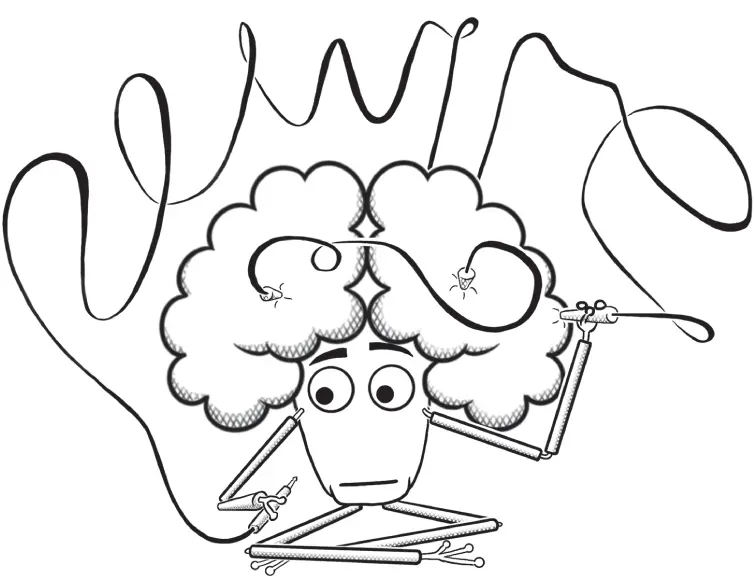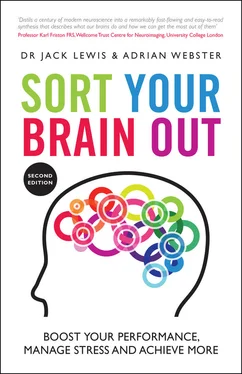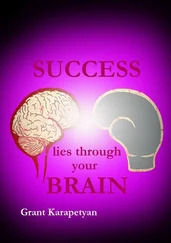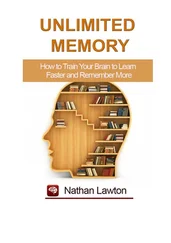Stress has a bad reputation. We tend to think of it as being a bad thing, something to be avoided if at all possible. Yet cortisol – the primary stress hormone – is vital for helping us to get things done. Released in your body in response to the problems of everyday life, it actually helps you deal with those problems. It may make you feel “stressed out,” but it's most definitely a friend and not a foe.
Cortisol is actually a vital part of any happy, well‐balanced and successful life. The part of the equation that many people overlook is that the desire to get rid of that feeling of being “stressed out” is part of the motivation we need to get useful things done. If cortisol didn't make us feel uncomfortable, we'd probably lack the impetus to take action. It also mobilizes body and brain to help deal with life's daily stresses by increasing metabolism, so that more physical and mental energy is available to help us eliminate the cause of the problem.
There's a natural daily rhythm to the release of cortisol to ensure that we're keyed up during the daytime and winding down towards bedtime. Bad or upsetting news triggers a boost of cortisol, which is why it's not a great idea to look at emails, social media or newsfeeds in the hour before bedtime.
The key point here is that a little bit of stress in the short term is a good thing but chronic stress is most definitely bad. Part of the reason is that in order to help you deal with life's major challenges, cortisol suppresses the immune system. This enables us to postpone feeling ill – which would otherwise force us to rest, to divert all available energy and resources into fighting off the bugs – until the stressful situation has passed by or been resolved.
Chronic stress describes a situation where cortisol levels remain high for many weeks or months, meaning that the body and brain never get the chance to repair properly, nor fight diseases. While it's often impossible to remove the sources of stress in life, there are several things you can do to actively reduce cortisol levels.
BOP3: Manage stress by proactively setting aside GOM time (see the chapter “All Aboard the Stress Express!”), clinically proven to reduce cortisol levels.
BOP4: Get out into nature, go soak up some rays
Getting out into nature makes humans happy. Two or more hours of recreation time outdoors each week makes a measurable difference. In fact, the more time we find to relax in parks, on the coast or in the countryside, the happier we become – an effect that peaks at five hours per week. This is partly due to the calming effect that fresh air and being in nature has on brains, but also thanks to getting more exposure to UV light from the sun.
When ultraviolet (UV) light strikes the skin it makes vitamin D. Vitamin D is vital for bone health, but it is also used in the brain to make a very important brain chemical called serotonin. Serotonin is crucial because it is involved in several brain pathways, including those that regulate mood and sleep. Keeping your vitamin D topped up by getting outdoors on sunny days improves mood by helping to keep serotonin levels high across the whole brain.
Your skin is your heaviest organ – and weighs three times more than your brain!
In many parts of the world, as the days get shorter there's not enough ultraviolet‐B (UVB) light available from the sun to activate production of vitamin D. To keep your serotonin levels topped up year‐round, try to be vigilant about getting out into the daylight from spring through to autumn when the UVB is stronger. Don't be put off by cloudy days! While cloud cover cuts out a large proportion of visible light, making it seem a bit gloomy compared to when the sun is out, the strength of the UV light is not diminished to the same degree. This is why you can still get a nasty sunburn on the beach even when it is overcast.
BOP4: Get outside in nature as much as you can. Two to five hours per week makes a significant difference to happiness levels!
BOP5: Caffeine – Great for brains (but morning only is best)
It is estimated that more than 50% of the world's population consumes coffee on a daily basis. That's despite us all having heard at some time or other that too much coffee is bad for our health. So what's the story? The scientific evidence suggests that if you regularly drink coffee then the caffeine will make you feel more alert, but only to levels that people who have never touched a drop in their lives enjoy every day! On the other hand, there do seem to be some long‐term benefits. Coffee drinkers enjoy a neuroprotective effect in the long run. It seems to slow down the neurodegenerative processes that are responsible for neurological conditions like dementia and Parkinson's disease, by 5–10 years! That said, it's also important to bear in mind that caffeine sticks around in our bodies for a very long time.
It takes six whole hours to reduce the caffeine levels in your bloodstream by half . That means if you have four cups of coffee in you at midday, then six hours later (at 6 pm) you still have two cups of coffee in you! Six hours after that (at midnight) there will still be one whole cup of coffee's worth of caffeine still in your system! Because sleep is vital for brain health – that's when all the repair and maintenance work, memory consolidation and toxin elimination happens – it's extremely important to get all your coffee drinking done in the morning or it may end up having a negative impact on your brain health overall.
BOP5: Moderate consumption of coffee (3–5 cups/day) protects your brain. But avoid drinking coffee in the afternoon if you want all the brain benefits of a good night's sleep as well!
Old Dogs, New Tricks
Rewiring needed
New skills don't come easy when first attempted but, with a bit of dedication, the early signs of improvement soon become apparent as we start to get into the swing of things. Eventually, what once felt completely alien becomes as easy as a walk in the park.

Why? Because your brain has invested sufficient resources into rewiring the pathways involved in executing that task. The key is not to lose faith when the early improvements start to taper off. Instead, you must keep pressing on. By doing so – and continuing to challenge your brain – it will continue to invest resources into improving communication between brain areas involved in whatever skill you are practising.
For most of us, this is easier said than done. As kids we were constantly confronted with having to try new things on a daily basis and thus struggling with new challenges was a normal, everyday experience. As adults, however, we are drawn by a natural instinct to seek comfort in behaviours that we know we are good at. As a result, we become less inclined to try new things that have the potential to make us feel like a failure. However, those who do trust their brains to adapt to any regularly encountered challenge and embrace the opportunity to try new things will inevitably continue to expand and develop their abilities.
As a child you were told by certain people who were most influential to you – parents, older relatives, teachers and peers – that you were good at some things and not so good at others. The themes that you regularly heard not only shaped your beliefs, but also profoundly influenced the environments and tasks that you chose to dedicate time to – the ones you became best adapted to – and the ones you tried to avoid.
Читать дальше













